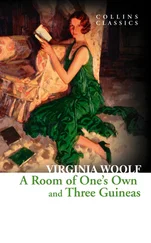Virginia Woolf - Jacob's Room
Здесь есть возможность читать онлайн «Virginia Woolf - Jacob's Room» весь текст электронной книги совершенно бесплатно (целиком полную версию без сокращений). В некоторых случаях можно слушать аудио, скачать через торрент в формате fb2 и присутствует краткое содержание. Жанр: Классическая проза, на английском языке. Описание произведения, (предисловие) а так же отзывы посетителей доступны на портале библиотеки ЛибКат.
- Название:Jacob's Room
- Автор:
- Жанр:
- Год:неизвестен
- ISBN:нет данных
- Рейтинг книги:3 / 5. Голосов: 1
-
Избранное:Добавить в избранное
- Отзывы:
-
Ваша оценка:
- 60
- 1
- 2
- 3
- 4
- 5
Jacob's Room: краткое содержание, описание и аннотация
Предлагаем к чтению аннотацию, описание, краткое содержание или предисловие (зависит от того, что написал сам автор книги «Jacob's Room»). Если вы не нашли необходимую информацию о книге — напишите в комментариях, мы постараемся отыскать её.
Jacob's Room — читать онлайн бесплатно полную книгу (весь текст) целиком
Ниже представлен текст книги, разбитый по страницам. Система сохранения места последней прочитанной страницы, позволяет с удобством читать онлайн бесплатно книгу «Jacob's Room», без необходимости каждый раз заново искать на чём Вы остановились. Поставьте закладку, и сможете в любой момент перейти на страницу, на которой закончили чтение.
Интервал:
Закладка:
"And the Greeks, like sensible men, never bothered to finish the backs of their statues," said Jacob, shading his eyes and observing that the side of the figure which is turned away from view is left in the rough.
He noted the slight irregularity in the line of the steps which "the artistic sense of the Greeks preferred to mathematical accuracy," he read in his guide-book.
He stood on the exact spot where the great statue of Athena used to stand, and identified the more famous landmarks of the scene beneath.
In short he was accurate and diligent; but profoundly morose. Moreover he was pestered by guides. This was on Monday.
But on Wednesday he wrote a telegram to Bonamy, telling him to come at once. And then he crumpled it in his hand and threw it in the gutter.
"For one thing he wouldn't come," he thought. "And then I daresay this sort of thing wears off." "This sort of thing" being that uneasy, painful feeling, something like selfishness-one wishes almost that the thing would stop-it is getting more and more beyond what is possible-"If it goes on much longer I shan't be able to cope with it-but if some one else were seeing it at the same time-Bonamy is stuffed in his room in Lincoln's Inn-oh, I say, damn it all, I say,"-the sight of Hymettus, Pentelicus, Lycabettus on one side, and the sea on the other, as one stands in the Parthenon at sunset, the sky pink feathered, the plain all colours, the marble tawny in one's eyes, is thus oppressive. Luckily Jacob had little sense of personal association; he seldom thought of Plato or Socrates in the flesh; on the other hand his feeling for architecture was very strong; he preferred statues to pictures; and he was beginning to think a great deal about the problems of civilization, which were solved, of course, so very remarkably by the ancient Greeks, though their solution is no help to us. Then the hook gave a great tug in his side as he lay in bed on Wednesday night; and he turned over with a desperate sort of tumble, remembering Sandra Wentworth Williams with whom he was in love.
Next day he climbed Pentelicus.
The day after he went up to the Acropolis. The hour was early; the place almost deserted; and possibly there was thunder in the air. But the sun struck full upon the Acropolis.
Jacob's intention was to sit down and read, and, finding a drum of marble conveniently placed, from which Marathon could be seen, and yet it was in the shade, while the Erechtheum blazed white in front of him, there he sat. And after reading a page he put his thumb in his book. Why not rule countries in the way they should be ruled? And he read again.
No doubt his position there overlooking Marathon somehow raised his spirits. Or it may have been that a slow capacious brain has these moments of flowering. Or he had, insensibly, while he was abroad, got into the way of thinking about politics.
And then looking up and seeing the sharp outline, his meditations were given an extraordinary edge; Greece was over; the Parthenon in ruins; yet there he was.
(Ladies with green and white umbrellas passed through the courtyard-French ladies on their way to join their husbands in Constantinople.)
Jacob read on again. And laying the book on the ground he began, as if inspired by what he had read, to write a note upon the importance of history-upon democracy-one of those scribbles upon which the work of a lifetime may be based; or again, it falls out of a book twenty years later, and one can't remember a word of it. It is a little painful. It had better be burnt.
Jacob wrote; began to draw a straight nose; when all the French ladies opening and shutting their umbrellas just beneath him exclaimed, looking at the sky, that one did not know what to expect-rain or fine weather?
Jacob got up and strolled across to the Erechtheum. There are still several women standing there holding the roof on their heads. Jacob straightened himself slightly; for stability and balance affect the body first. These statues annulled things so! He stared at them, then turned, and there was Madame Lucien Grave perched on a block of marble with her kodak pointed at his head. Of course she jumped down, in spite of her age, her figure, and her tight boots-having, now that her daughter was married, lapsed with a luxurious abandonment, grand enough in its way, into the fleshy grotesque; she jumped down, but not before Jacob had seen her.
"Damn these women-damn these women!" he thought. And he went to fetch his book which he had left lying on the ground in the Parthenon.
"How they spoil things," he murmured, leaning against one of the pillars, pressing his book tight between his arm and his side. (As for the weather, no doubt the storm would break soon; Athens was under cloud.)
"It is those damned women," said Jacob, without any trace of bitterness, but rather with sadness and disappointment that what might have been should never be.
(This violent disillusionment is generally to be expected in young men in the prime of life, sound of wind and limb, who will soon become fathers of families and directors of banks.)
Then, making sure that the Frenchwomen had gone, and looking cautiously round him, Jacob strolled over to the Erechtheum and looked rather furtively at the goddess on the left-hand side holding the roof on her head. She reminded him of Sandra Wentworth Williams. He looked at her, then looked away. He looked at her, then looked away. He was extraordinarily moved, and with the battered Greek nose in his head, with Sandra in his head, with all sorts of things in his head, off he started to walk right up to the top of Mount Hymettus, alone, in the heat.
That very afternoon Bonamy went expressly to talk about Jacob to tea with Clara Durrant in the square behind Sloane Street where, on hot spring days, there are striped blinds over the front windows, single horses pawing the macadam outside the doors, and elderly gentlemen in yellow waistcoats ringing bells and stepping in very politely when the maid demurely replies that Mrs. Durrant is at home.
Bonamy sat with Clara in the sunny front room with the barrel organ piping sweetly outside; the water-cart going slowly along spraying the pavement; the carriages jingling, and all the silver and chintz, brown and blue rugs and vases filled with green boughs, striped with trembling yellow bars.
The insipidity of what was said needs no illustration-Bonamy kept on gently returning quiet answers and accumulating amazement at an existence squeezed and emasculated within a white satin shoe (Mrs. Durrant meanwhile enunciating strident politics with Sir Somebody in the back room) until the virginity of Clara's soul appeared to him candid; the depths unknown; and he would have brought out Jacob's name had he not begun to feel positively certain that Clara loved him-and could do nothing whatever.
"Nothing whatever!" he exclaimed, as the door shut, and, for a man of his temperament, got a very queer feeling, as he walked through the park, of carriages irresistibly driven; of flower beds uncompromisingly geometrical; of force rushing round geometrical patterns in the most senseless way in the world. "Was Clara," he thought, pausing to watch the boys bathing in the Serpentine, "the silent woman?-would Jacob marry her?"
But in Athens in the sunshine, in Athens, where it is almost impossible to get afternoon tea, and elderly gentlemen who talk politics talk them all the other way round, in Athens sat Sandra Wentworth Williams, veiled, in white, her legs stretched in front of her, one elbow on the arm of the bamboo chair, blue clouds wavering and drifting from her cigarette.
The orange trees which flourish in the Square of the Constitution, the band, the dragging of feet, the sky, the houses, lemon and rose coloured-all this became so significant to Mrs. Wentworth Williams after her second cup of coffee that she began dramatizing the story of the noble and impulsive Englishwoman who had offered a seat in her carriage to the old American lady at Mycenae (Mrs. Duggan)-not altogether a false story, though it said nothing of Evan, standing first on one foot, then on the other, waiting for the women to stop chattering.
Читать дальшеИнтервал:
Закладка:
Похожие книги на «Jacob's Room»
Представляем Вашему вниманию похожие книги на «Jacob's Room» списком для выбора. Мы отобрали схожую по названию и смыслу литературу в надежде предоставить читателям больше вариантов отыскать новые, интересные, ещё непрочитанные произведения.
Обсуждение, отзывы о книге «Jacob's Room» и просто собственные мнения читателей. Оставьте ваши комментарии, напишите, что Вы думаете о произведении, его смысле или главных героях. Укажите что конкретно понравилось, а что нет, и почему Вы так считаете.











